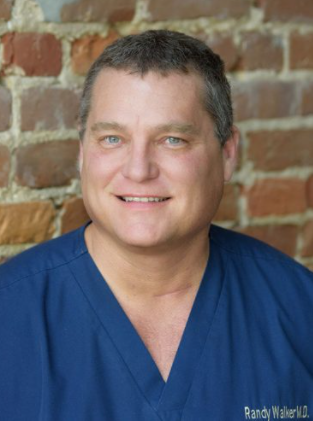

By Randy Walker, MD
Today’s independent primary care physicians are finding themselves delivering far more than just quality care to their patients; they are more and more often having to formulate answers to questions like, “Why are my deductibles so high?” and “Why is the local rural hospital closing?” and “Why can’t I keep taking the medicine I’ve been on for the last 20 years?”
Patients have questions. And as varying political agendas jockey for headlines, it is becoming increasingly imperative that those questions get answers because if they don’t, physicians may be sure that they’ll be answered by someone with an agenda that doesn’t align with what’s best for patient-centered, community-focused healthcare.
Every independent primary care physician should be able to answer such questions with a clear and concise narrative. They should be able to tell the story of the decline of U.S. medicine, and offer clear logical solutions based on that truthful narrative – a narrative that supports their ability to focus on the health of their patients and their communities.
Unfortunately, too often, independent primary care physicians overlook the value and strength of their own voices, and as a result, they find themselves held prisoner by the political system – dependent on the hope that their representatives will make sound policy decisions that benefit their patients and communities. These physicians don’t have the platform, the time, or the resources to educate the public, leaving important questions unanswered and the future of medicine decided by those who have greater political and financial backing, rather than those who are actually practicing it.
Professional medical associations often employ the more traditional means of being heard – letter-writing campaigns, support for lawsuits, and the like – and these activities certainly have value. Yet these efforts are too often led by non-physician advocates and result in a polite and gentle steamrolling of physicians as agendas contrary to what’s best for primary care practices and their patients rise to the fore.
This is why physician-led state advocacy committees, like those facilitated by Aledade, are so essential to elevating the voice of primary care practitioners. Arkansas’ physician-led policy committee – the first of its kind – was formalized in the fall of 2019 in response to a consensus opinion among representatives of independent, physician-owned primary care clinics that their perspectives were not represented in state-level, healthcare-related leadership discussions that tend to be dominated by the clinically integrated networks in the state.
Specifically, these community-based physicians and practice leaders have articulated long-standing concerns about individuals and associations claiming to speak on their behalf without knowledge of, or familiarity with, the challenges that are so unique to independent, physician-owned practices. In response to these concerns, and in an environment of a rapidly changing healthcare system, a structure was created through which these physicians and practice leaders could begin to voice their perspective about ongoing changes in the state’s healthcare system. Through this committee, participating physicians have elevated the value of primary care in their communities through direct outreach with state associations, legislators, and a multitude of stakeholders across medical organizations. As a result, and especially during a series of increasingly alarming statewide surges in COVID 19 cases, rural communities in Arkansas are being prioritized as essential components to population health efforts.
Case in point: when independent Arkansas physicians voiced a recent need to address rising COVID diagnoses and vaccine hesitancy in their rural communities, the Arkansas committee, in collaboration with Aledade, responded immediately. Within just two weeks, member primary care practices across the state had access to a package of public service announcements and related materials that center on the role of the family physician as a trusted resource of information about the COVID vaccine. As a result, local practices are seeing an uptick in patient engagement in COVID vaccination.
Efforts like this one are testaments to the fact that physicians can shape public opinion about the issues that affect health and healthcare by lifting their voices and speaking directly to their communities – and without having to increase their political donations or run for political office. The voices of the nation’s primary care physicians, especially when combined, far exceed the value of the millions in campaign contributions, lawsuits, and lobbyists.
And the unavoidable truth is, independent physicians are nearly the only people remaining in the business of medicine who have a direct obligation to the patient. To fail to raise their voices in unison against disruptive political agendas and policies, is to fail the patients who need them most.
About the Author: Born and raised in Hatfield, Arkansas, Dr. Randy Walker received his degree in medicine form the University of Arkansas for Medical Sciences in 2000. He served his family practice residency with the Area Health Education Center of South Arkansas (AHEC), and has been in private practice since 2003 in DeQueen, Arkansas. Dr. Walker is certified by the American Board of Family Practice and has a special interest in Allergies and Environmental Medicine. He is married to Angie Hughes-Walker, who is also his office manager, and together they have one child.
